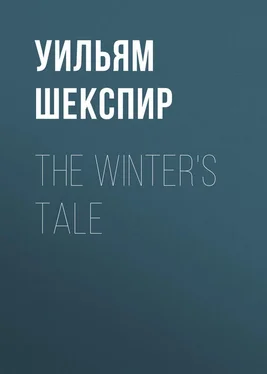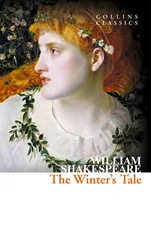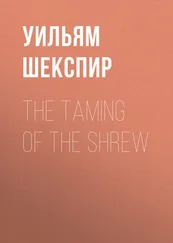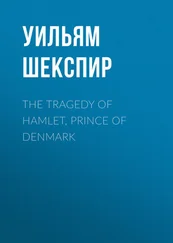Уильям Шекспир - The Winter's Tale
Здесь есть возможность читать онлайн «Уильям Шекспир - The Winter's Tale» — ознакомительный отрывок электронной книги совершенно бесплатно, а после прочтения отрывка купить полную версию. В некоторых случаях можно слушать аудио, скачать через торрент в формате fb2 и присутствует краткое содержание. Издательство: Иностранный паблик, Жанр: Европейская старинная литература, Драматургия, foreign_dramaturgy, на английском языке. Описание произведения, (предисловие) а так же отзывы посетителей доступны на портале библиотеки ЛибКат.
- Название:The Winter's Tale
- Автор:
- Издательство:Иностранный паблик
- Жанр:
- Год:неизвестен
- ISBN:нет данных
- Рейтинг книги:4 / 5. Голосов: 1
-
Избранное:Добавить в избранное
- Отзывы:
-
Ваша оценка:
- 80
- 1
- 2
- 3
- 4
- 5
The Winter's Tale: краткое содержание, описание и аннотация
Предлагаем к чтению аннотацию, описание, краткое содержание или предисловие (зависит от того, что написал сам автор книги «The Winter's Tale»). Если вы не нашли необходимую информацию о книге — напишите в комментариях, мы постараемся отыскать её.
The Winter's Tale — читать онлайн ознакомительный отрывок
Ниже представлен текст книги, разбитый по страницам. Система сохранения места последней прочитанной страницы, позволяет с удобством читать онлайн бесплатно книгу «The Winter's Tale», без необходимости каждый раз заново искать на чём Вы остановились. Поставьте закладку, и сможете в любой момент перейти на страницу, на которой закончили чтение.
Интервал:
Закладка:
William Shakespeare
The Winter's Tale
LEONTES, King of Sicilia
MAMILLIUS, his son, the young Prince of Sicilia
CAMILLO, lord of Sicilia
ANTIGONUS, " " "
CLEOMENES, " " "
DION, " " "
POLIXENES, King of Bohemia
FLORIZEL, his son, Prince of Bohemia
ARCHIDAMUS, a lord of Bohemia
OLD SHEPHERD, reputed father of Perdita
CLOWN, his son
AUTOLYCUS, a rogue
A MARINER
A GAOLER
TIME, as Chorus
HERMIONE, Queen to Leontes
PERDITA, daughter to Leontes and Hermione
PAULINA, wife to Antigonus
EMILIA, a lady attending on the Queen
MOPSA, shepherdess
DORCAS, "
Other Lords, Gentlemen, Ladies, Officers, Servants, Shepherds,
Shepherdesses
SCENE: Sicilia and Bohemia
ACT I. SCENE I. Sicilia. The palace of LEONTES
Enter CAMILLO and ARCHIDAMUS
ARCHIDAMUS. If you shall chance, Camillo, to visit Bohemia, on
the
like occasion whereon my services are now on foot, you shall
see,
as I have said, great difference betwixt our Bohemia and your
Sicilia.
CAMILLO. I think this coming summer the King of Sicilia means
to
pay Bohemia the visitation which he justly owes him.
ARCHIDAMUS. Wherein our entertainment shall shame us we will be
justified in our loves; for indeed-
CAMILLO. Beseech you-
ARCHIDAMUS. Verily, I speak it in the freedom of my knowledge:
we
cannot with such magnificence, in so rare- I know not what to
say. We will give you sleepy drinks, that your senses,
unintelligent of our insufficience, may, though they cannot
praise us, as little accuse us.
CAMILLO. You pay a great deal too dear for what's given freely.
ARCHIDAMUS. Believe me, I speak as my understanding instructs
me
and as mine honesty puts it to utterance.
CAMILLO. Sicilia cannot show himself overkind to Bohemia. They
were
train'd together in their childhoods; and there rooted
betwixt
them then such an affection which cannot choose but branch
now.
Since their more mature dignities and royal necessities made
separation of their society, their encounters, though not
personal, have been royally attorneyed with interchange of
gifts,
letters, loving embassies; that they have seem'd to be
together,
though absent; shook hands, as over a vast; and embrac'd as
it
were from the ends of opposed winds. The heavens continue
their
loves!
ARCHIDAMUS. I think there is not in the world either malice or
matter to alter it. You have an unspeakable comfort of your
young
Prince Mamillius; it is a gentleman of the greatest promise
that
ever came into my note.
CAMILLO. I very well agree with you in the hopes of him. It is
a
gallant child; one that indeed physics the subject, makes old
hearts fresh; they that went on crutches ere he was born
desire
yet their life to see him a man.
ARCHIDAMUS. Would they else be content to die?
CAMILLO. Yes; if there were no other excuse why they should
desire
to live.
ARCHIDAMUS. If the King had no son, they would desire to live
on
crutches till he had one.
SCENE II. Sicilia. The palace of LEONTES
Enter LEONTES, POLIXENES, HERMIONE, MAMILLIUS, CAMILLO, and ATTENDANTS
POLIXENES. Nine changes of the wat'ry star hath been
The shepherd's note since we have left our throne
Without a burden. Time as long again
Would be fill'd up, my brother, with our thanks;
And yet we should for perpetuity
Go hence in debt. And therefore, like a cipher,
Yet standing in rich place, I multiply
With one 'We thank you' many thousands moe
That go before it.
LEONTES. Stay your thanks a while,
And pay them when you part.
POLIXENES. Sir, that's to-morrow.
I am question'd by my fears of what may chance
Or breed upon our absence, that may blow
No sneaping winds at home, to make us say
'This is put forth too truly.' Besides, I have stay'd
To tire your royalty.
LEONTES. We are tougher, brother,
Than you can put us to't.
POLIXENES. No longer stay.
LEONTES. One sev'night longer.
POLIXENES. Very sooth, to-morrow.
LEONTES. We'll part the time between's then; and in that
I'll no gainsaying.
POLIXENES. Press me not, beseech you, so.
There is no tongue that moves, none, none i' th' world,
So soon as yours could win me. So it should now,
Were there necessity in your request, although
'Twere needful I denied it. My affairs
Do even drag me homeward; which to hinder
Were in your love a whip to me; my stay
To you a charge and trouble. To save both,
Farewell, our brother.
LEONTES. Tongue-tied, our Queen? Speak you.
HERMIONE. I had thought, sir, to have held my peace until
You had drawn oaths from him not to stay. You, sir,
Charge him too coldly. Tell him you are sure
All in Bohemia's well- this satisfaction
The by-gone day proclaim'd. Say this to him,
He's beat from his best ward.
LEONTES. Well said, Hermione.
HERMIONE. To tell he longs to see his son were strong;
But let him say so then, and let him go;
But let him swear so, and he shall not stay;
We'll thwack him hence with distaffs.
[To POLIXENES] Yet of your royal presence I'll
adventure the borrow of a week. When at Bohemia
You take my lord, I'll give him my commission
To let him there a month behind the gest
Prefix'd for's parting. – Yet, good deed, Leontes,
I love thee not a jar o' th' clock behind
What lady she her lord. – You'll stay?
POLIXENES. No, madam.
HERMIONE. Nay, but you will?
POLIXENES. I may not, verily.
HERMIONE. Verily!
You put me off with limber vows; but I,
Though you would seek t' unsphere the stars with oaths,
Should yet say 'Sir, no going.' Verily,
You shall not go; a lady's 'verily' is
As potent as a lord's. Will go yet?
Force me to keep you as a prisoner,
Not like a guest; so you shall pay your fees
When you depart, and save your thanks. How say you?
My prisoner or my guest? By your dread 'verily,'
One of them you shall be.
POLIXENES. Your guest, then, madam:
To be your prisoner should import offending;
Which is for me less easy to commit
Than you to punish.
HERMIONE. Not your gaoler then,
But your kind. hostess. Come, I'll question you
Of my lord's tricks and yours when you were boys.
You were pretty lordings then!
POLIXENES. We were, fair Queen,
Two lads that thought there was no more behind
But such a day to-morrow as to-day,
And to be boy eternal.
HERMIONE. Was not my lord
The verier wag o' th' two?
POLIXENES. We were as twinn'd lambs that did frisk i' th' sun
And bleat the one at th' other. What we chang'd
Was innocence for innocence; we knew not
The doctrine of ill-doing, nor dream'd
That any did. Had we pursu'd that life,
And our weak spirits ne'er been higher rear'd
With stronger blood, we should have answer'd heaven
Boldly 'Not guilty,' the imposition clear'd
Hereditary ours.
HERMIONE. By this we gather
You have tripp'd since.
POLIXENES. O my most sacred lady,
Temptations have since then been born to 's, for
In those unfledg'd days was my wife a girl;
Your precious self had then not cross'd the eyes
Of my young playfellow.
HERMIONE. Grace to boot!
Of this make no conclusion, lest you say
Your queen and I are devils. Yet, go on;
Th' offences we have made you do we'll answer,
If you first sinn'd with us, and that with us
You did continue fault, and that you slipp'd not
With any but with us.
LEONTES. Is he won yet?
HERMIONE. He'll stay, my lord.
LEONTES. At my request he would not.
Интервал:
Закладка:
Похожие книги на «The Winter's Tale»
Представляем Вашему вниманию похожие книги на «The Winter's Tale» списком для выбора. Мы отобрали схожую по названию и смыслу литературу в надежде предоставить читателям больше вариантов отыскать новые, интересные, ещё непрочитанные произведения.
Обсуждение, отзывы о книге «The Winter's Tale» и просто собственные мнения читателей. Оставьте ваши комментарии, напишите, что Вы думаете о произведении, его смысле или главных героях. Укажите что конкретно понравилось, а что нет, и почему Вы так считаете.












